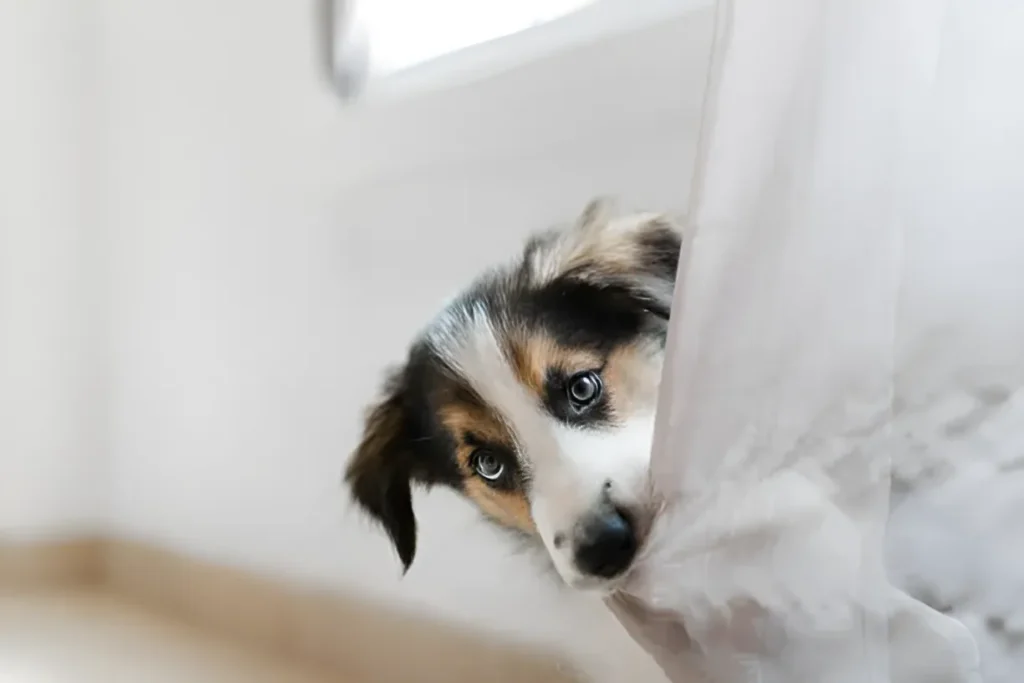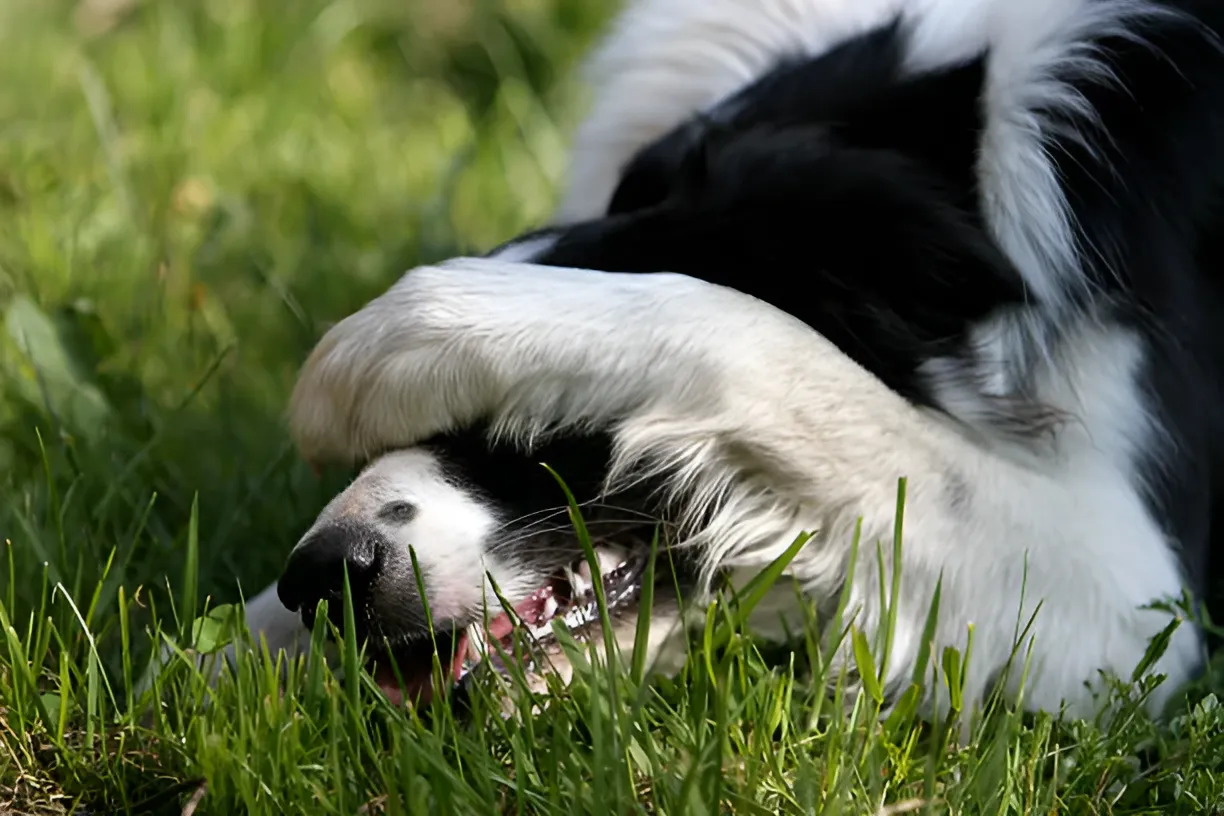While dogs don’t feel shame in the same way humans do, they can experience similar emotions and understand our disapproval. They might not grasp the moral or social implications of their actions, but they are incredibly adept at reading our tone and body language.
What Science Says About Dog Emotions
Most animal behavior experts agree that dogs lack the complex cognitive abilities necessary for true shame. When your dog gives you the “guilty look” – ears back, tail tucked, that sorrowful gaze – it’s likely not an admission of wrongdoing. Instead, they’re reacting to your scolding or displeasure. Studies like those conducted by Alexandra Horowitz suggest that dogs display these “guilty” behaviors whether they actually misbehaved or not.
So What’s Behind That Look?
Sensitivity to our Emotions: Dogs are masters of reading human cues. They’ve evolved alongside us, becoming attuned to our moods and reactions. That “guilty” expression might be a way of appeasing us and easing tension.
Learned Behavior: Over time, dogs learn that particular actions (like raiding the trash) lead to scolding. They may start exhibiting submissive behaviors as soon as they see cues that we’re upset, hoping to avoid negative consequences.
Something Deeper?: While the evidence for full-blown shame is thin, we can’t rule out that dogs experience a range of complex emotions we may not yet fully understand. Behaviors like hiding, avoidance, or excessive appeasement could suggest discomfort beyond simply reacting to an owner’s anger.
Beyond Shame: Other Emotions at Play

It’s important to distinguish between shame and related emotions dogs might experience:
- Fear: Your dog might cower out of fear of punishment rather than genuine remorse.
- Anxiety: Destructive behaviors or accidents could stem from separation anxiety or underlying stress.
- Embarrassment: While unlikely, some dogs might exhibit behaviors akin to embarrassment in social situations, reacting to the awkwardness of the moment.
What to Do When Your Dog Seems ‘Guilty’
- Positive Reinforcement: Focus on redirecting unwanted behaviors and rewarding good ones instead of relying on punishment.
- Address Root Causes: Figure out why your dog misbehaved. Were they bored, anxious, or understimulated? Addressing the underlying problem is key.
- Don’t Anthropomorphize: Remember, dogs don’t think like we do. Attributing human emotions like shame can sometimes hinder our ability to understand and effectively help them.
The Evolving Understanding of Canine Minds
The research on dog emotions is constantly evolving. While it seems unlikely they experience shame as we know it, that doesn’t mean their inner lives are simple. They feel deeply, have a sense of fairness, and their understanding of our social world is remarkable.
Conclusion
The next time you find your dog wearing the “guilty look,” take a moment to consider what might be beneath the surface. They might not be grappling with moral dilemmas, but they’re still communicating with us. With patience and understanding, we can strengthen our bond with our canine companions.
The photo featured below the post headline is Credit: s5iztok/Gettyimages
I hope you find this post helpful and informative. If Yes’ feel free to share it with your friends!
Frequently Asked Question
Why does my dog look guilty even when he didn’t do anything?
They’ve learned to connect your negative emotional cues with certain situations, even if they didn’t cause the problem.
How can I stop my dog from feeling ashamed?
Focus on redirection and positive training methods, avoid punishment, and work on addressing the root causes of misbehavior.
Do dogs understand why I’m angry at them?
It’s unlikely your dog fully grasps the specific reason for your displeasure. They might not connect their chewing on your shoe hours ago with your current scolding. Instead, they’re reacting to your raised voice, tense posture, and overall negative energy.
Is it okay to pretend to be mad at my dog for training purposes?
While some traditional training methods used this tactic, it’s generally discouraged now. Pretending to be angry can damage your bond with your dog and increase their anxiety levels. Positive reinforcement techniques are more effective and promote a trusting relationship.
Does my dog feel bad after I yell at them?
More than feeling “bad” in a moral sense, your dog likely feels fear, confusion, and possibly stress when yelled at. Yelling is not an effective way to communicate with your dog or modify their behavior.
If dogs don’t feel shame, why do they hide after doing something wrong?
Hiding can stem from several reasons. Your dog might be attempting to avoid conflict, seeking a safe space if they feel scared, or they might have learned that hiding sometimes makes the negative attention go away.
Do dogs feel guilt after biting?
It’s unlikely your dog feels guilt in the same way a human might after hurting someone. They might not understand the full implications of their actions. However, they could feel fear, confusion, or anxiety if you are visibly upset or if the person they bit reacts strongly. Focus on addressing the reason for the biting and using positive training to prevent future incidents.
Do dogs feel shame when they poop (inside the house)?
Dogs don’t experience shame about bodily functions like we do. If your dog has an accident inside, they might react with submissive behaviors because they’ve learned that toileting indoors leads to your displeasure. Cleaning up without scolding and focusing on consistent house training are key.
Do dogs feel bad when they hurt you?
If your dog hurts you accidentally during play, they might not feel “bad” in a moral sense. However, they’re likely to pick up on your cues of pain. They could display appeasement behaviors, become more cautious, or even stop playing entirely, depending on their sensitivity and your reaction.

